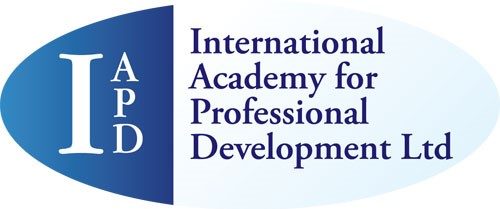
The Health and Safety Executive (HSE), through its Working Minds campaign which aims to prevent work-related stress and promote good mental health in the workplace, has compiled a list of resources to assist employers and workers during stress awareness month this April.
HSE and its twenty-two partner organisations across Great Britain have come together to urge workplaces to take action on work-related stress and mental health.
Launched in November 2021, Working Minds has grown from nine to 22 partners, with the next two members the Scottish Association for Mental Health (SAMH), and See Me – Scotland’s national programme to end mental health stigma, both joining this month.
The campaign is reminding businesses the law requires all employers to assess the risk of work-related stress, and to assist employers to prevent or tackle any work-related stress to support good mental health in their workers. To assist them and workers achieve this and access support they may require, HSE has collated multiple resources into one simple document which is accessible here.
Liz Goodwill, Head of the Work-Related Stress and Mental Health Policy Team at HSE, said: “Stress Awareness Month is an opportunity for employers to check in and support their staff’s mental health. Working Minds helps employers to follow five simple steps based on risk assessment. They are to Reach out and have conversations, Recognise the signs and causes of stress, Respond to any risks you’ve identified, Reflect on actions you’ve agreed and taken, and make it Routine. It needs to become the norm to talk about stress and how people are feeling and coping at work.
“There are six main areas that can lead to work-related stress if they are not managed properly. These are: demands, control, support, relationships, role and change. Factors like skills and experience, age, or disability may all affect someone’s ability to cope.”
Helpful resources
- Visit the Working Minds campaign website
- Visit the HSE’s work-related stress webpages
- Listen to our podcast with Professor Cary Cooper, one the world’s foremost experts on wellbeing
- Watch our stress and mental health at work video
- See HSE’s Stress Management Standards
- Download a Talking Toolkit
- Download our prevent stress at work poster
- Download a risk assessment template
- Download the mobile app
- Stress Indicator Tool
- NEBOSH stress training qualification & training course
- Mind helpline (open 9am-6pm weekdays) – 0300 123 3393
Andrew Berrie, Head of Workplace Wellbeing at Mind, says: “Paying attention to workplace mental health has never been more important. Whoever you are and whatever you do for work, Mental Health at Work has plenty of tools, resources, and stories to support you and your teams.”
Francoise Woolley, Head of Mental Health and Wellbeing at Acas, said: “This month is an opportunity to reflect on how organisations are supporting the wellbeing of their employees and addressing the causes of stress at work. Leaders and managers play a huge role in recognising and responding to signs that someone might be struggling, and creating an environment where employees feel safe to speak up about their concerns.”
Carole Spiers, Chair of ISMA UK, said: “We are pleased to support Stress Awareness Month, increasing public awareness about the causes of stress and how to help combat it. Prolonged and intense stress in the workplace can result in burnout, negatively impacting employees’ mental and physical health.
To prevent this, it’s essential for employers to engage in open discussions with their employees about stress.”
Emma Mamo, Assistant Director of Workplace and Business Development at SAMH, said: “Regardless of the size of your organisation, promoting mental health should be a key priority. We know that a mentally healthy workplace is more productive, has lower staff turnover and fewer absences, with added benefits including higher staff morale and improved working relationships.
“Through our partnership with Working Minds, we aim to raise awareness and help empower people in workplaces across the country. This is also a key component of SAMH Workplace training, which develops the confidence and capabilities of participants, equipping learners with the tools and resources they need to improve the mental health and wellbeing of themselves and others.”
Wendy Halliday, Director of See Me, said: “HSE’s Working Minds campaign is an important partnership for us at See Me.
“The last few years have been tough for workers across the country, and we know that more needs to be done to enable people to feel comfortable speaking about their mental health.
“Mental health stigma continues to be a major barrier for people in the workplace, with nearly 40 per cent of Scottish workers telling us that they think colleagues are unlikely to speak about a mental health problem at work for fear of losing their job. This means that people aren’t asking for help when they need it, which can lead to bigger issues for employers.
“By encouraging staff to speak more openly about mental health, and providing employers with the tools and resources they require to support their employees, we can create more mentally healthy workplaces, free from stigma and discrimination.”
Whether it’s a small business or a large corporation, the law requires all employers to prevent work related stress to support good mental health in the workplace. They have a legal duty to protect workers from stress at work by doing a risk assessment and acting on it.
If employers don’t do anything about it, it will cost. That cost might be productivity, sickness absence, losing a valued member of the team if they’re not able to stay in work or from litigation costs such as an Employment Tribunal.
HSE Press Release issued on 1st April 2023

